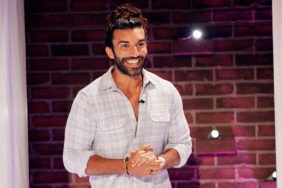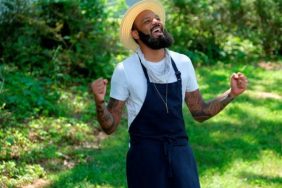
At one point in Dylan Hicks’ new novel, Amateurs, central character (and sex toy fortune heir) Archer is described as “an attractive mesh of arrogance and awkwardness.” The same could be said of the narrative itself. The story follows friends (or are they frenemies?) as they couple up, break up, and reconvene for a wedding in Winnipeg. Cue love geometry (John longs for Sara who adores Archer who is marrying Gemma who used to date Lucas who is now enamored of Karyn) and egocentric inner monologues.
Hicks’ strengths lie in fastidious detail and witty dialogue; both abound in this book. His most authentic character is, surprisingly, single mother Karyn. And while public blow jobs are par for the course in male-authored novels, in this narrative, a female is on the receiving end of the pleasure for once.
That said, a ghostwriting “scandal” barely bruises its participants and (spoiler alert) an abortion is treated with less dramatic fanfare than a mention in the New Yorker. Farcical, yes, though not quite as funny as one wants it to be. Amateurs is certainly worth the read, but don’t expect any epiphanies.
Crave spoke to Minneapolis-based Hicks in anticipation of the novel’s release.
Crave: Did you study writing in college?
Dylan Hicks: No, I was a history major but I was a college dropout. I played in rock bands and played music. I did go back to school later but I didn’t have any formal training in writing.
When did you know you were a writer and capable of authoring books?
I started working as a journalist in my early 30s. As a teenager, I had ambitions to be a music critic of some sort. I had an interest in writing from an early age. I didn’t take any practical measures to pursue that goal. But I did some writing on my own. That kind of turned into general arts journalism and editing. From there, I went to fiction.
In your author statement for Amateurs, you say that the book is part satire and “Doubtless this satire is a reaction in part against my own pomposity, always latent and sometimes pronounced.” How do you exhibit pomposity and where did it come from?
I don’t remember–I’m sure I wrote that–I don’t remember the context. I guess my sensibility often takes a satirical cast. That’s not really the impetus of the book, it just has this element that satirizes literary culture and sometimes pomposity. I sometimes find myself talking about myself or my work in terms that seem a little inflated. As a Midwesterner, perhaps, I’m particularly cautious about that because we’re supposed to be so modest here. I try to take my work seriously but not take myself seriously. Sometimes satire helps enforce that.
Wealth and class seem to be major themes of this novel as well. Why did you want to explore those in the book?
In some ways, the book borrows its form from romantic comedy, both Hollywood romantic comedy and–I mean this comparison only historically–Jane Austen. I thought I would write something that would have a couple of romantic plots and those would both be tied up with economics and money in the way that those 19th century novels tend to be and yet that it would reflect our present world.
Would you say this book is about midlife crises?
Only one of the characters is in midlife. The woman, Karyn, is more of my contemporary; she’s in the early stages of midlife. She’s lonely and I think feels a bit of her intellectual aspirations of her younger years haven’t come to fruition. I don’t necessarily think she’s in a midlife crisis. She has a good relationship with her son and she’s not universally unhappy.
Your other characters seem…resigned? Or is it melancholy?
To some degree, my characterization is partitioning my own qualities into different characters and infusing them with invention and observation and so forth. My disposition is somewhat melancholy mixed with a comic worldview. Of course there are a great many people who are on some sort of medication for what is typically called depression, and that’s something I’ve dealt with over the years and tried to figure out different strategies to combat, so I’m probably drawn to melancholy in characters.
The book is set in several places. Minnesota and New York make sense. But why Winnipeg?
I’m interested in Bohemia and narcissistic sensibilities and I like how they play out in mid-sized cities. I like Winnipeg. I haven’t spent a great deal of time there, but it’s smaller than the Twin Cites but it has some similar qualities that I find attractive. I liked the idea of having this very, very wealthy young man come from Winnipeg. I wanted there to be a wedding at a Winnipeg country club.
What was behind the decision to make Archer a sex toy heir?
His step-father had established a company that manufactured marital aids and other sex toys. That’s not the principal source of his wealth. It’s kind of a small part of it. He has inherited a lot of money from other industries: lumber and glassware inventions and so forth. I can’t remember now why that happened. I think I sort of improvised the speech that he was making when he first meets the Sara character and it was inspired by me reading a book about the history of masturbation.
Your characters discuss writing a lot. When you’re writing a book, do you have conversations about it or are you private about your process?
I’m more private, probably to a fault. I know a lot of my friends benefit greatly from having a writing group with whom they share manuscripts in progress. I’m a little bit shy about that. I always feel if I’m still making changes and working on something, I’m reluctant to show it. It’s probably a combination of vanity and…I’m not sure. But I got a lot of great support and guidance from an editor on this book later in the process. I like to talk shop or talk about books and writing with friends, but not always about my own work.
What’s behind the title? At what do you think these characters are amateurs?
I wanted it to be in part a romantic book, so I was playing on the root of “amateurs,” doing something with love, “amour” and all that. Karyn, the character with whom I feel most aligned, is working on a play of sorts that sprung from private improvisation, and I’m always attracted to those people—they are so few—who do artistic things without an eye toward showing them or making them public. Of course most of us want to share our work, and that’s great, but I’m always intrigued by people who can do things for their own enjoyment. And then there are other people who are just not terribly good at what they do. It’s both admiring and sometimes poking fun of the characters at being amateurs.
In what area of life do you feel like an amateur?
Oh, probably in most. [Laughs] I’m not very single-minded in my pursuits. Before I turned to writing, I played music. I’ve gotten more proficient as an instrumentalist, but I’m not terribly proficient all the same. Sometimes I think, “If I’d only focused on that more, I’d be better at that.” Likewise, if I weren’t sidetracked by music and other pursuits, I’d have more to show for as a writer. Not exactly amateurism, but I’ve been scattered in my interests.






